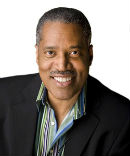A Rasmussen poll taken in 2013 asked American adults, “Are most white Americans racist?” “Are most Hispanic Americans racist?” and “Are most black Americans racist?” Of the three groups, the winner was blacks.
Thirty-seven percent said most blacks were racist; 18 percent felt most Hispanics were racist, and 15 percent said most whites were racist.
Thirty-eight percent of whites felt most blacks were racist. Even blacks agreed, with 31 percent saying most blacks were racist, while 24 percent of blacks thought most whites racist and 15 percent believed most Hispanics were racist.
This brings us to the Cornell University’s Black Students United and whether the organization is engaging in racism — against blacks. The BSU complains that the prestigious Ivy League school admits too many blacks — from Africa and the Caribbean. “We demand that Cornell Admissions to come up with a plan to actively increase the presence of underrepresented Black students on this campus,” the BSU student group said in its demands. “We define underrepresented Black students as Black Americans who have several generations (more than two) in this country.”
Hold the phone. Isn’t the mantra of modern higher education “diversity,” “inclusion” and “overcoming disadvantage”? If so, the black African and Caribbean students would seem to nail all three.
Black Student Group Complains Ivy League School Is Letting In Too Many African Students https://t.co/DujuXvXN2b pic.twitter.com/7nh4Jk9Ai5
— The Daily Caller (@DailyCaller) September 29, 2017
Maybe the problem is that it is tough to explain why so many black foreign applicants outperform America-born blacks on what some call “culturally biased” standardized tests. A 2007 study by Princeton and University of Pennsylvania sociologists examined the standardized test scores of black students enrolled at 28 selective universities. As to the SAT, the test most colleges use as an important factor in offering admission, the study found that foreign-born black college-bound students earned a statistically significant advantage on SAT scores, averaging a score of 1250 (out of 1600) compared to 1193 average points for their American black counterparts. This explains, in large part, why first- or second-generation black immigrants made up 27 percent of the black student bodies at colleges nationwide. In the Ivy League, black immigrants comprised 41 percent of black students.
What is the basis for the black students’ protest? Don’t black foreigners face even more obstacles? After all, America spends more on education, K through 12, than the top 34 industrialized countries save Switzerland, Austria, Norway and Luxembourg. New York City and Washington, D.C., annually spend approximately $21,000 and $15,000 per student, respectively.
BSU might want to consider the letter to the editor of The Wall Street Journal written by a man from Congo:
“I grew up in the Congo and have numerous friends in the U.S. from the Congo and other African countries who are here for an education or a better life. Every one of them is grateful for the opportunity to secure an excellent education. … Most come here from different cultures with minimal money and limited English language skills. Interestingly, I’ve never heard one complain about discrimination, obstacles or being a victim. Rather, they are grateful. Juxtapose this with Cornell’s Black Students United (BSU) whose members feel they should be treated better than every other color or race if they have ancestors who’ve been here for more than two generations.
“The counterintuitive posturing of American blacks denying other blacks from Africa or the Caribbean is appalling. First-generation African or Caribbean students have more obstacles to overcome to get into any university, much less a prestigious one like Cornell. Furthermore, the liberal American blacks who worship at the altar of ‘diversity’ and ‘victimhood’ should welcome real Africans or Caribbeans versus seeking preferences for those American blacks who truly have the superior advantage of having grown up in the U.S.
“If my Congolese friends are grateful for their opportunities here and have more challenges to overcome, why should American blacks get special treatment? Call this action what it is: racism. And it’s being pushed and protected under the guise of alleged victimization and preferential treatment at the expense of others of all colors and walks of life. So I challenge the BSU folks to start focusing on the concept of succeeding in life instead of always dwelling on the idea that the system is rigged against them.”
The black immigrant culture rejects the victicrat mentality embraced by so many American blacks. In “The Triple Package,” a 2014 book about immigrants’ children, a son of Nigerian-born parents says, “If you start thinking about or becoming absorbed in the mentality that the whole system is against us, then you cannot succeed.”
Rather than complain about the success of foreign-born blacks, why not give failing urban schools some competition through vouchers to give parents greater choice in where to educate their children, a policy currently pushed by the Trump administration? In the Detroit public school district, for example, just seven percent of eighth-graders are proficient or better in reading and just four percent are sufficient or better in math, despite total expenditures per student of over $18,000, according to the 2015 National Assessment of Educational Progress tests.
Isn’t this the real problem?
COPYRIGHT 2017 LAURENCE A. ELDER
DISTRIBUTED BY CREATORS.COM
 Larry Elder is a bestselling author and radio talk-show host. To find out more about Larry Elder, or become an “Elderado,” visit www.LarryElder.com. Follow Larry on Twitter @larryelder.
Larry Elder is a bestselling author and radio talk-show host. To find out more about Larry Elder, or become an “Elderado,” visit www.LarryElder.com. Follow Larry on Twitter @larryelder.
The views expressed in opinion articles are solely those of the author and are not necessarily either shared or endorsed by Black Community News.
 CURE News and Clergy Blog News and Commentary for Christians
CURE News and Clergy Blog News and Commentary for Christians



